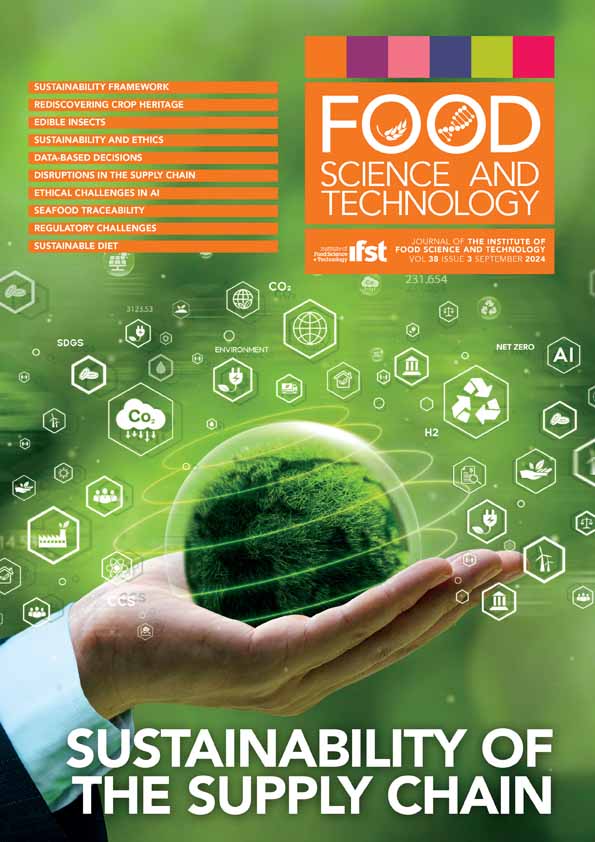Extraction and characterization of collagen from the skin of Pterygoplichthys spp. (armored catfish) from Chiapas
Q2 Agricultural and Biological Sciences
引用次数: 0
Abstract
Because of its biocompatibility and safety, collagen is a valuable biomaterial that is used in various industries. While traditionally sourced from terrestrial mammals, collagen extracted from fish waste is a promising alternative due to its chemical properties and low cost. In Mexico, Pterygoplichthys spp. is considered an invasive species, inedible, and of limited commercial importance due to the low muscle content and skin covered with rigid bony plates. This study aimed to extract and characterize collagen from the skin of Pterygoplichthys spp. obtained from two communities in Chiapas, Mexico. Our results show that the extracted collagen is type 1, with a yield of 43.0% (dry weight). Sodium dodecyl sulfate polyacrylamide gel electrophoresis analysis revealed the presence of two alpha chains (α1, α2) and a beta and gamma component, consistent with type 1 collagen. Liquid chromatography coupled to mass spectrophotometry analysis identified peptide sequences homologous to those reported in other species. This study highlights the potential of Pterygoplichthys spp. skin collagen as a viable alternative to mammalian collagen. The efficiency of the extraction process and the identification of peptides resembling those of the other species underscore the feasibility of utilizing collagen from the skin of Pterygoplichthys spp. in industrial applications, offering a sustainable solution to environmental and economic challenges. Practical Application: Collagen extracted from the skin of Pterygoplichthys spp., an invasive fish species, can serve as a sustainable alternative to mammalian collagen, offering a cost-effective biomaterial with properties suitable for various industrial applications.从恰帕斯州的铠甲鲶鱼皮中提取胶原蛋白并确定其特性
胶原蛋白具有生物相容性和安全性,是一种宝贵的生物材料,广泛应用于各行各业。虽然胶原蛋白传统上来自陆生哺乳动物,但从鱼类废弃物中提取的胶原蛋白因其化学特性和低成本而成为一种很有前景的替代品。在墨西哥,翼鳃鱼属被认为是入侵物种,不能食用,由于肌肉含量低且皮肤覆盖着坚硬的骨板,其商业价值有限。本研究旨在从墨西哥恰帕斯州两个社区获得的翼角鱼皮肤中提取胶原蛋白并确定其特征。结果显示,提取的胶原蛋白为 1 型,产量为 43.0%(干重)。十二烷基硫酸钠聚丙烯酰胺凝胶电泳分析显示存在两条α链(α1、α2)以及β和γ成分,与 1 型胶原蛋白一致。液相色谱耦合质谱光度分析确定了与其他物种中报告的肽序列同源的肽序列。这项研究强调了翼角鲨属皮肤胶原蛋白作为哺乳动物胶原蛋白替代品的潜力。提取过程的效率和与其他物种相似的肽的鉴定强调了将翼角鲨皮胶原蛋白用于工业应用的可行性,为环境和经济挑战提供了可持续的解决方案。实际应用:从入侵鱼类翼手目鱼皮中提取的胶原蛋白可作为哺乳动物胶原蛋白的可持续替代品,提供一种具有成本效益的生物材料,其特性适合各种工业应用。
本文章由计算机程序翻译,如有差异,请以英文原文为准。
求助全文
约1分钟内获得全文
求助全文
来源期刊

Food Science and Technology
农林科学-食品科技
自引率
0.00%
发文量
0
审稿时长
12 weeks
期刊介绍:
Information not localized
 求助内容:
求助内容: 应助结果提醒方式:
应助结果提醒方式:


